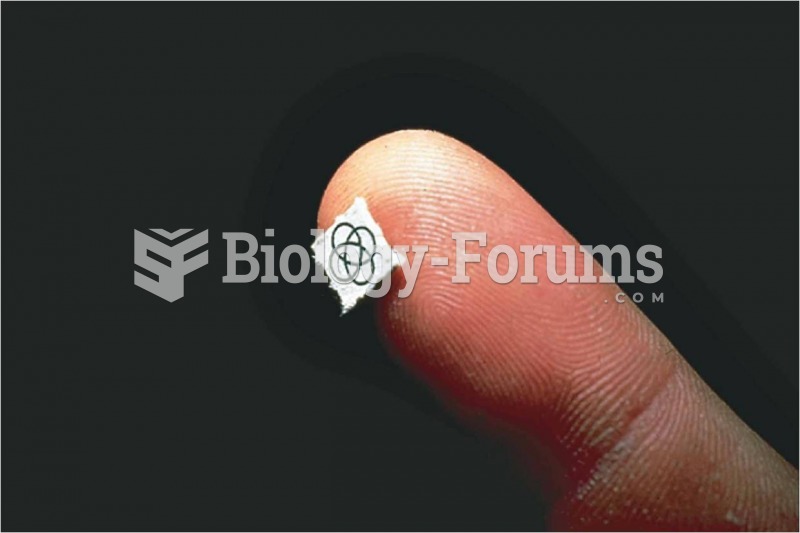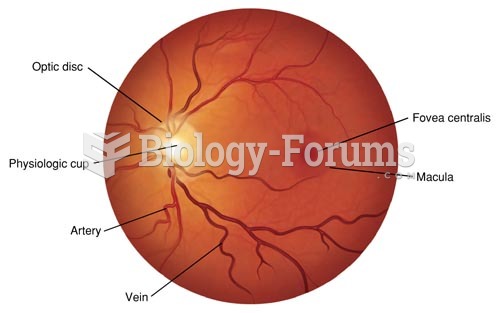|
|
|
To maintain good kidney function, you should drink at least 3 quarts of water daily. Water dilutes urine and helps prevent concentrations of salts and minerals that can lead to kidney stone formation. Chronic dehydration is a major contributor to the development of kidney stones.
The Babylonians wrote numbers in a system that used 60 as the base value rather than the number 10. They did not have a symbol for "zero."
Earwax has antimicrobial properties that reduce the viability of bacteria and fungus in the human ear.
A seasonal flu vaccine is the best way to reduce the chances you will get seasonal influenza and spread it to others.
Most fungi that pathogenically affect humans live in soil. If a person is not healthy, has an open wound, or is immunocompromised, a fungal infection can be very aggressive.
 Proper placement and monitoring of an automatic blood pressure cuff will reduce the risk of injury o
Proper placement and monitoring of an automatic blood pressure cuff will reduce the risk of injury o
 (A) A 62-year-old patient with myxedema exhibiting marked edema of the face and a somnolent look. Th
(A) A 62-year-old patient with myxedema exhibiting marked edema of the face and a somnolent look. Th
 Comparison of the chemical structures of psilocybin and LSD. Psilocybin (left) is derived from a mus
Comparison of the chemical structures of psilocybin and LSD. Psilocybin (left) is derived from a mus




